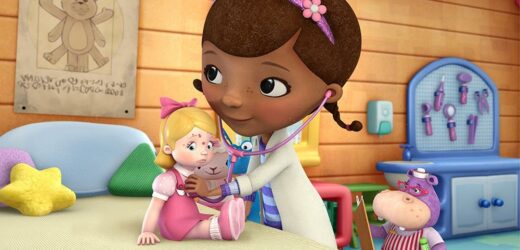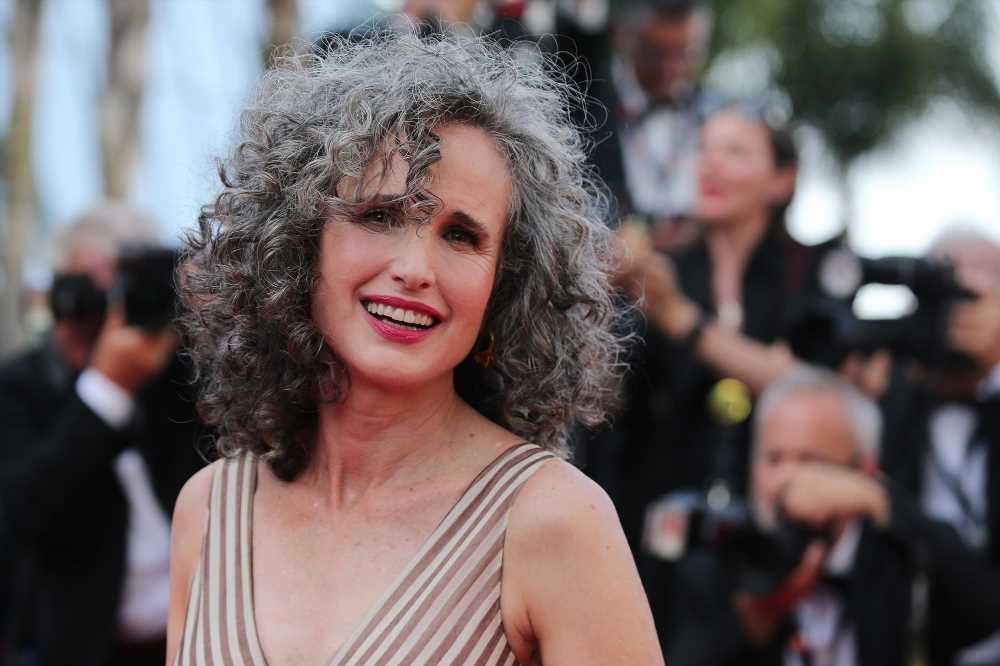Ten years ago, an animated show about a young Black girl who tended to the wounds of her toys and aspired to become a doctor remade the preschool TV landscape. “Doc McStuffins” was the first show to feature a young girl of color using science, technology, engineering and math (STEM) skill set to solve the problems of those around her. She was also part of Black family in which the parents were professionals and positive role models.
This watershed moment for representation came from creator Chris Nee’s own struggles as a child, feeling lost and left out as an LGBTQ youth who never saw herself represented in the shows she watched or the culture around her. Nee wanted to make something that made kids feel seen and feel accepted.
“My goal is entertainment,” Nee says. “I want these shows to be funny. But I think the deep relationship that you have with the show also means that it has to show heartbreak and drama and all of the other things that kids actually go through. We were really pushing for all of that and looking for episodes that could be special and different and ensure our characters go through something and share that experience with kids at home.”
Nee and the writers found ways to discuss subjects you might not expect in a preschool series — adoption, cancer, community service and hygiene. As the show started to get feedback from kids and parents who watched it, Nee was inspired by the real lives of viewers who would write letters about their struggles.
The show leaned into its music to approach a range of topics. Songwriter Michelle Lewis, who pulled from influences including David Bowie and Queen when writing songs for the show, focused on classic rock ’n’ roll storytelling to craft lyrics that would be memorable for kids. “Wash Your Hands,” which first appeared in Season 1, later went on to become a huge hit during the pandemic when parents were looking for ways to remind kids of ways to prevent the spread of COVID-19.
“One of the first [songs we wrote] was ‘Everyone Gets Hurt Sometimes’ and that was one of those lovely moments where the melody and the message just kind of matched in every sort of sweet way,” Lewis says. “And ‘Love Makes a Family’ is another one of those moments. You would think it would be more constraining [to write songs for kids] but it’s not. It’s very rich.”
Though Disney stopped producing new episodes in 2020, the show remains a favorite. In 2018, the Geena Davis Institute conducted a survey that found more than 50% of a group of 900 girls in school and college named the series as an influence that left enough of a lasting impression on them to pursue a STEM career.
New generations of fans are also watching the show. Earlier this year, Disney Junior aired a marathon of “Doc McStuffins” episodes to celebrate the 10th anniversary of the first episode airing on the network. Later in 2022 it will also air a special inspired by the series.
From the first season onward, the show made a significant impact on popular culture. Myiesha Taylor, a doctor who discovered the show while watching it with her then 4-year-old daughter, Hana, was one of many Black physicians who felt the impact of the show in terms of how she saw herself and her medical practice.
“I was on social media when I saw [“Doc McStuffins”] and after I watched a couple of episodes, I really liked it so I put together these collages,” says Taylor of the photos she gathered of Black physicians along with the hashtag #WeAreDocMcStuffins. “A lot of times, women don’t even consider medicine or certain fields in medicine just because the idea was never planted, or the expectation was that they would [be] a great fill-in-the-blank stereotypical women’s role.”
The women featured in Taylor’s collages went on to form Artemis Medical Society, which is made up of physicians of color who work to promote diversity in the medical fields and encourage the next generation of doctors.
Comedian W. Kamau Bell also based parts of his Netflix stand-up special on the experiences of his family watching “Doc McStuffins.” His oldest daughter, now 11, grew up with the show. When she watched the main character and her family, it set a different expectation.
“She grew up not thinking it was a big deal that Black girls were doctors and those interstitials in the middle of the show helped,” says Bell. “Not only was the Black cartoon a doctor, not only was the Black cartoon’s mom a doctor, but there were Black doctors in the interstitials in the show. So, it just wasn’t a big deal.”
Bell was also moved by the episode “Take Your Doc to Work Day,” in which a doll deals with her feelings about her curly hair and how it makes her feel different from nearly everyone around her.
“The episode was definitely winking to people with curly hair and the doll looked like a mixed-race kid and I was just like, ‘Thank you!’” says Bell. “I actually teared up during that ‘Doc McStuffins’ because I don’t know where else my daughter is going to find this content that’s speaking to her.”
Nee, who is also the creator of “Vampirina,” “We the People” and “Ridley Jones,” is still focused on making inclusive shows with her latest projects. She also wants to bring more diverse creators into animation.
“The central idea of the show came out of looking for a way to demystify doctors for kids because my son had asthma,” says Nee. “The themes I’m always playing with are about communities and how they take care of each other and how characters who are really, really different from each other can still consider each other part of their community. I couldn’t have known how important that would be in this country and in this world. But it certainly feels like it’s as relevant today as it was 10 years ago.”
Source: Read Full Article

